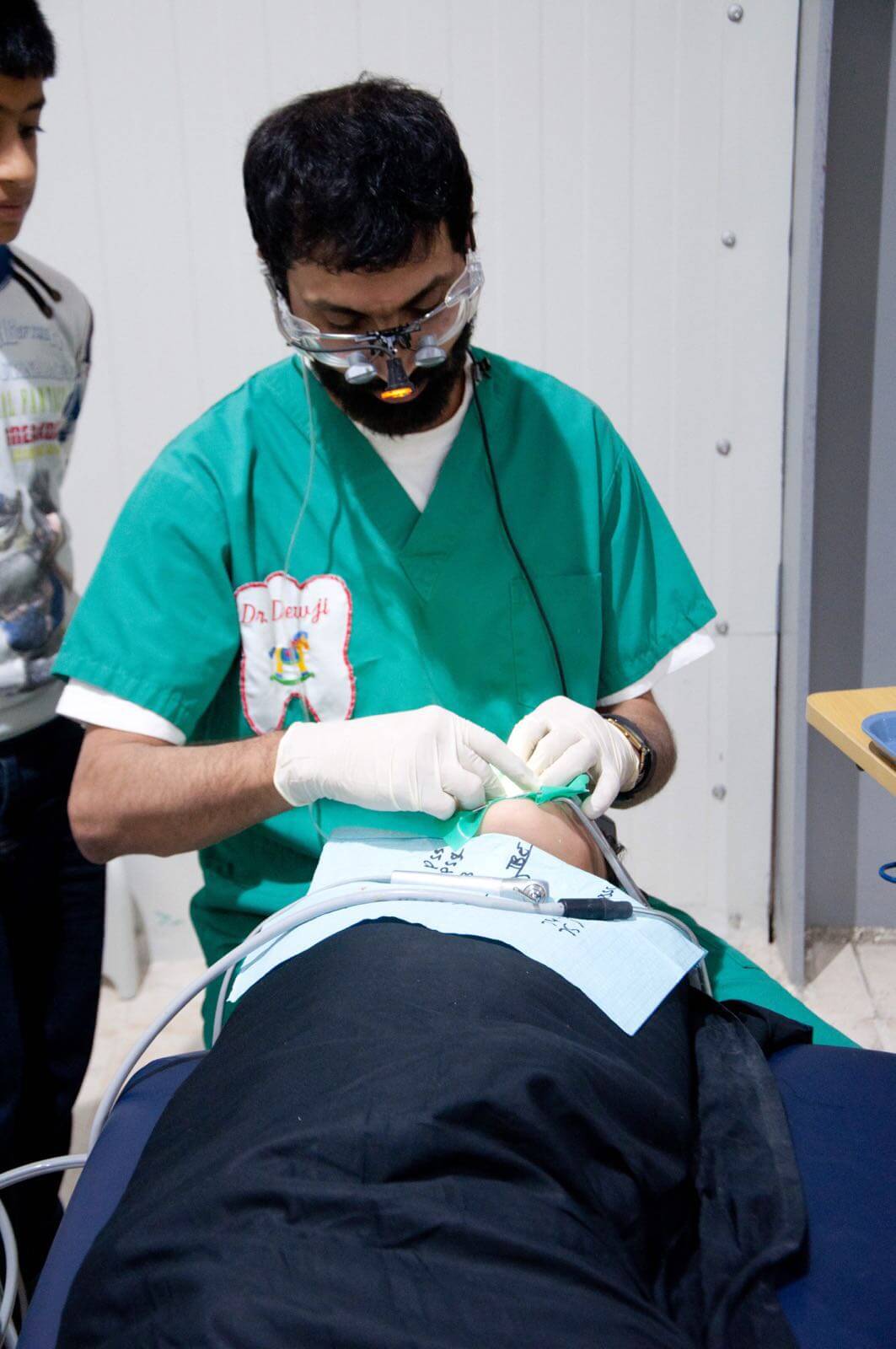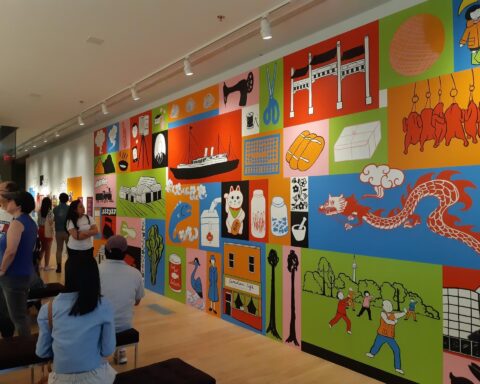Hossein is a 10-year-old Iraqi orphan with long hair, big olive-coloured eyes and a shy smile. He loves going to school and playing soccer. He also loves visiting his Canadian dentist for annual check-ups.
Hossein’s dentist is one of 51 volunteers who fly into Iraq every spring to provide free dental care.
Armed with colouring books, games and iPads – to entertain the children while they wait for their turn – the dentists come fully equipped to carry out everything from oral health instruction to preventative care, including fissure sealants, extractions and stainless steel crowns.
Toronto dentist Jaffer Kermalli* has been treating Hossein for several years. “His long hair hides scars from a bomb blast he was in,” Kermalli shares. “He came back to us [this year] and specifically wanted us to fix a broken front tooth and take away the pain from another tooth in his mouth.”
Kermalli recently went on his fifth trip to Iraq with Global Kindness Foundation (GKF), a Vancouver-based charitable organization that takes two trips every year to provide medical, dental and optical services to countries in need due to war and poverty.
“To see the state of these children and how much they struggle; it puts all my first-world problems into perspective.”[
A passion project
In 2015, GKF took its dental mission to Iraq and Kenya. In the past, the organization (members pictured) also travelled to Peru, India and Tanzania.
The 33-year-old dentist calls it his “passion project.”
“I plan my year around the GKF trips, and over the years have become more active in helping organize supplies and train volunteers. It gives me focus throughout the year, and is my ‘reset,’” he says. “To see the state of these children and how much they struggle; it puts all my first-world problems into perspective.”
The children they treat are generally thrilled to see them – notwithstanding the usual anxiety that comes with dental visits.
For many, it means the first time ever sitting in a dentist’s chair, or holding a toothbrush. The lack of basic awareness is a direct outcome of living in both a war-torn country and refugee camps, where dental care is scarce or not available at all.
Many non-dental volunteers have also joined the group, along with several opticians and physicians. The non-medical volunteers are assigned roles like screening the children in the waiting areas, occupying the children while they wait for their appointment and assisting the dentists.
For many, it means the first time ever sitting in a dentist’s chair, or holding a toothbrush.
Shahina Rahim, an IT executive at the Royal Bank of Canada in Toronto, joined GKF for a second time this year.
“I wanted to make a small difference to the lives of the children,” she says. “I couldn’t stop thinking about them and wanted to come back and help.”
This time, though, she took a few Arabic classes in Toronto before leaving in order to help overcome the language barrier.
 Meeting many needs
Meeting many needs
Additional medical and optical camps were also set up, seeing more than 1,000 children over two weeks. Many were referred to specialists.
“One child had a case of congenital heart defect which had gone untreated and required surgery,” recalls Vancouver dentist and GKF founder, Dr. Hasnain Dewji (pictured).
“There were also some cases of severe psychiatric conditions, so a referral to a local psychiatrist was arranged. Two other boys needed growth-hormone therapy. We are trying to determine the cost of therapy and see if we can raise the funds needed.”
The two opticians in the group also flew in from Vancouver, and determined that at least 60 of the children they saw required corrective lenses. The charity arranged for the eyeglasses to be made in Tanzania and delivered for free to Iraq.
“[The kids] have aspirations, optimism and hopes and dreams like all of us.”
Kids are kids
The dental mission to Iraq started on March 19 and ended April 1. GKF is already recruiting its next set of volunteers to travel to Bhavnagar, India, in December.
For Rahim, the hardest part of her trip to Iraq was witnessing the social remnants of war – the beggars, the children in wheelchairs and the sheer poverty.
“For many of the kids, you can see the poverty through hygiene, dirty or worn clothes, and shoes or sandals that don’t fit them.”
But none of that seemed to stop them from smiling, laughing and dreaming, she adds.
“My encounter with the kids has been a wonderful one. They have aspirations, optimism and hopes and dreams like all of us,” she says.
“Kids are kids after all, no matter what part of the world they live in.”
*Source is not related to the author.





